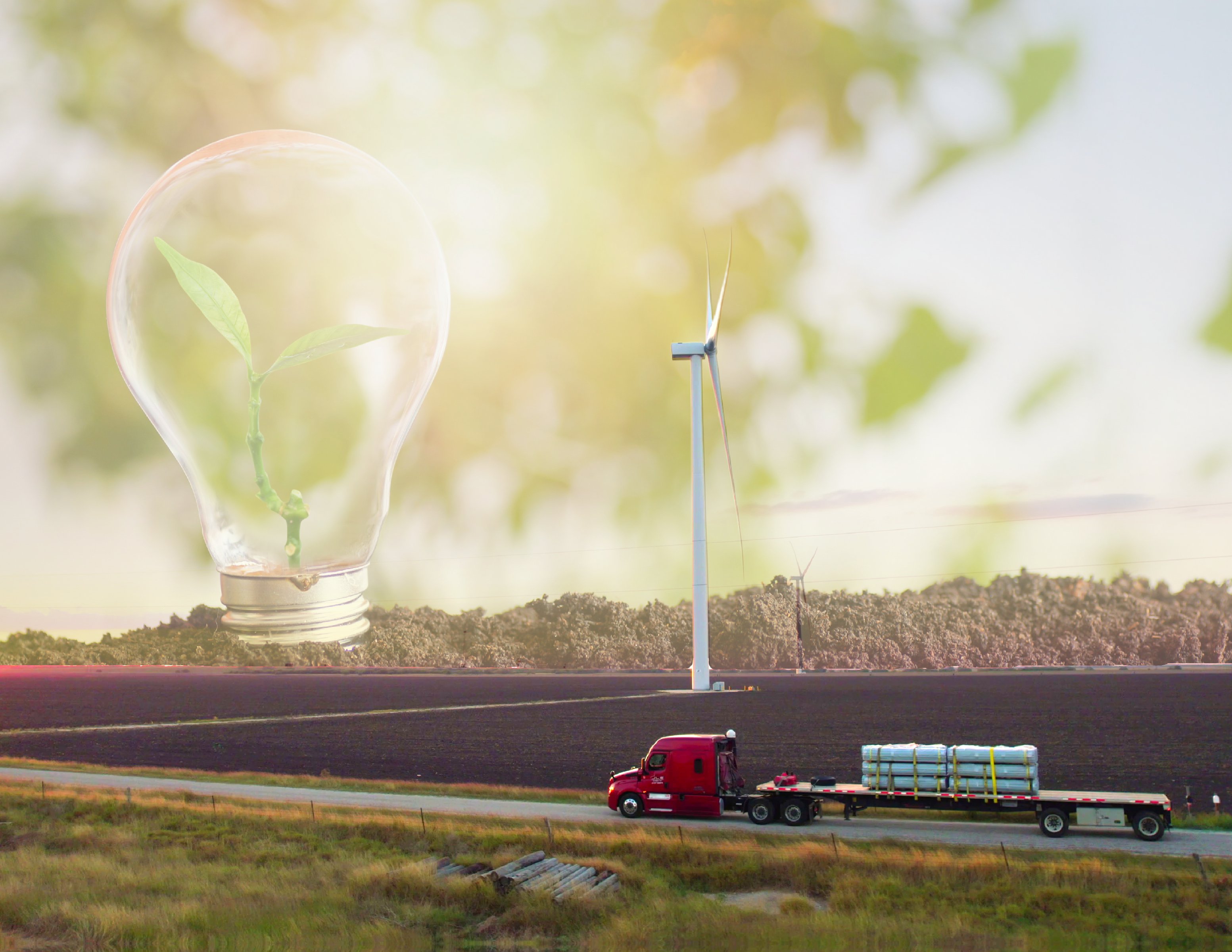
ESG - Environmental, Social, and Governance - has become established as a must-have initiative for business across industries, as global sustainability challenges introduce new risk factors for investors and shareholders. Companies and investors are increasingly applying these ESG factors as part of their analysis process to identify material risks and growth opportunities. Over the past two+ years, there has been a worldwide realization as to how important the supply chain is and just how crippled it can become. The rise of ESG initiatives is in part a response to this challenge.
At JLE, our ESG strategy is congruent with our vision to provide heightened resiliency to the industry post-pandemic, beginning in our Flatbed market niche. We approach those challenges with data and data science. When we think about sustainability, our spectrum is the “S” and the “G”, not only the “E”. We want to bring the industry out of the dark ages, where it has been for the last fifty years, and into a mindset that is more progressive and more resilient. The technologies that we employ - specifically, our proprietary technology, DriverOS - are at the heart of our overall business strategy and are an integral part of our ESG initiatives.
Everything we do at JLE, including our ESG strategy, is predicated on great people, process, and technology. The most important thing we do for the “people” part of that equation is to create value for our professional driver talent; DriverOS is our central system for connecting shippers and drivers, allowing us to better organize our data using software and algorithms into actionable information, and it presents that to our Professional Flatbed Talent in mobile form for them to self-select and plan their drives and, by doing so, empower them to create sustainable careers. Along the way, the route efficiencies created by the Drivers’ use of DriverOS contribute to a more sustainable mode of truck transportation.
Trucking is an essential business, but also a significant emitter of greenhouse gas. Acknowledging this and recognizing our carbon footprint at JLE is the first step in being able to create strategies to address that. We have been proactive and transparent with our efforts, and have tried to align ourselves with customers and partners who support our efforts. We are “putting our money where our mouth is” in our pilot partnership with the environment to reduce carbon.
We are proud of our recent partnership with Remora as part of our long-range decarbonization strategy. Remora's innovative device captures the carbon emissions from a semi-truck. The captured carbon dioxide is then sold to concrete producers and other end-users, allowing us to earn new revenue while meeting our climate commitments. If our upcoming test run of Remora’s device reveals that we can truly achieve up to 80% reduction in the carbon that is emitted from the combustion process, recycle that, and get paid to do it so that we can reinvest in our business; that's an absolute win-win for us. It is great for the environment, our stakeholders, and our drivers.
We were introduced to Remora through our capital relationships. We were really impressed with the genuine nature that underscored their product and what Paul Gross, their CEO, is trying to do. He spent time thoughtfully educating us on the concepts of additionality and permanency. When you talk about moving the needle, from a carbon reduction perspective, you are adding something; that's the concept of additionality. If the product is something that is able to be a permanent solution, that is permanency.
This additionality context has changed the way we think of our environmental and social objectives at JLE. It is essentially a way to create a new economy around a good cause and employs our technology. We are also creating a new revenue stream, which allows us to continue to invest in our business and gives us a head start on some of the things that we are thinking about on the social side of the ecosystem.
In addition to our work with Remora, we are taking action on our commitment to a strong ESG strategy by applying to receive a B Corporation (also B Lab or B Corp) certification, a private certification of for-profit companies of their "social and environmental performance,” which utilizes the framework of the United Nations Sustainable Development Goals. It is distinct from the legal designation as a benefit corporation. B Corp certification is conferred by B Lab, a global nonprofit organization with offices in the United States, Europe, Canada, Australia and New Zealand, and a partnership in Latin America with Sistema B. To be granted and to maintain certification, companies must receive a minimum score of 80 from an assessment of "social and environmental performance,” integrate B Corp commitments to stakeholders into company governing documents, and pay an annual fee based on annual sales. Companies must re-certify every three years to retain B Corporation status.
There is a lot of talk, in our industry and others, about the “Net Zero” concept. Here at JLE, we want to be net positive. We have set out the principles, the purpose, the practices that will deliver the scale of change and transformation that this industry. We are committed to making a difference, to reducing the risks faced from air pollution and health effects caused by freight transportation. By measuring, benchmarking, and assessing activities and strategically making better choices that reduce emission, we can make a significant impact on the contribution of freight to cleaner air.